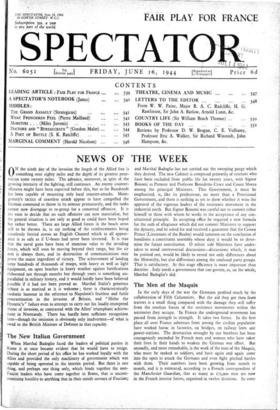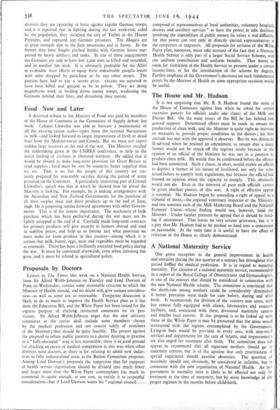The Men of the Maquis
In the early days of the war the Germans profited much by the collaboration of Fifth Columnists. But the aid they got then from traitors is a small thing compared with the damage they will suffer from the resolute forces of the resistance movements within the territories they occupy. 'In France the underground movement has passed from strength to strength. It takes two forms. In the first place all over France saboteurs from among the civilian population have worked havoc in factories, on bridges, on railway lines and power-stations. The destruction wrought by our bombers has been courageously seconded by French men and women who have taken their lives in their hands to weaken the German war effort. But secondly, and more remarkable, is the work of the men of the Maquis, who must be ranked as soldiers, and have again and again come into the open to attack the Germans and even fight pitched battles with them. Their numbers have been growing from month to month, and it is estimated, according to a French correspondent of the Manchester Guardian, that as many as 175,000 men are now in the French interior forces, organised in twelve divisions. In some districts they are operating in force against regular German troops, and it is reported that in fighting during the last week-end, aided by the population, they occupied the city of Tarbes in the Hautes Pyrenees, and captured 300 German prisoners. The Maquis are in great strength also in the Jura mountains and in Savoy. In the former they have fought pitched battles with German forces sup- ported by heavy artillery and tanks. In one of these engagements the Germans are said to have lost 1,200 men in killed and wounded, and in another 700 men. It is obviously profitable for the Allies to re-double their efforts to equip these redoubtable gue;illa forces with arms dropped by parachute or by any other means. The patriots have had to pay a severe price. 1 to,000 are reported to have been killed and 400,000 to be in prison. They are doing magnificent work in holding down enemy troops, weakening the Germans behind their lines, and disturbing their morale.



























